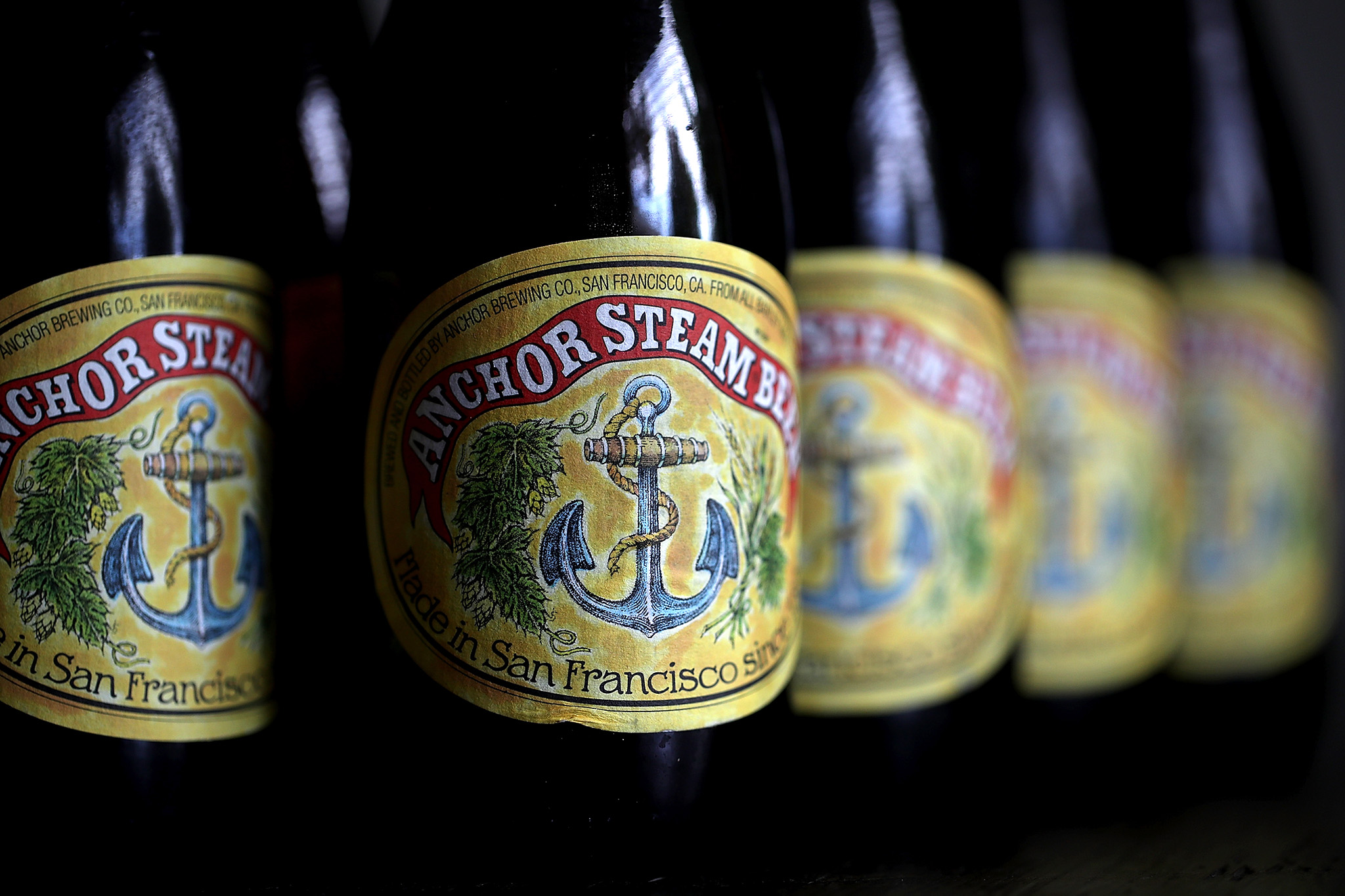The Demise Of Anchor Brewing Company: What Went Wrong?

Table of Contents
Changing Consumer Preferences and the Craft Beer Boom
The craft beer landscape has undergone a dramatic transformation since Anchor Brewing's heyday. The once-niche market exploded, leading to intense competition and shifting consumer tastes.
Increased Competition
The craft beer industry experienced an unprecedented boom, with hundreds of new breweries emerging, each vying for a share of the market. This created a highly competitive environment that challenged Anchor's dominance.
- Examples of successful competitors: Breweries like Sierra Nevada, Stone Brewing, and Dogfish Head, with their diverse styles and aggressive marketing, stole market share from Anchor.
- The rise of IPAs and other styles: The explosive popularity of India Pale Ales (IPAs) and other bolder, more experimental styles overshadowed Anchor Steam Beer's more traditional profile. Smaller, local breweries, often with hyper-local appeal and unique styles, also chipped away at Anchor's market share.
- The impact of smaller, local breweries: The rise of "craft-within-a-craft" movements, focusing on hyperlocal ingredients and styles, presented further challenges to a large-scale brewer like Anchor.
Shifting Taste Palates
Consumer preferences evolved rapidly, favoring bolder flavors and more experimental beer styles. Anchor Steam Beer, while a classic, became perceived as less exciting compared to the innovative offerings from newer breweries.
- Trends in beer styles: The popularity of IPAs, sours, stouts, and other specialty beers showcased a consumer desire for variety and complexity.
- Consumer demand for variety: The modern craft beer drinker seeks a broad spectrum of flavors and experiences. Anchor's relatively limited range of beers couldn't satisfy this thirst for variety.
- The influence of social media and craft beer culture: Social media platforms played a significant role in amplifying the popularity of new breweries and styles, further marginalizing Anchor's more traditional image.
Strategic and Management Issues
Beyond external pressures, internal strategic and management decisions also contributed to Anchor Brewing Company's decline.
Lack of Innovation and Marketing
Anchor Brewing failed to adapt its branding and product line to keep pace with the changing market. A lack of new product introductions and ineffective marketing strategies further hampered its growth.
- Examples of failed product launches: While not publicly detailed, a lack of successful new product launches indicates a failure to understand and cater to the shifting consumer preferences.
- Comparison to competitor marketing strategies: Competitors often utilized sophisticated marketing campaigns, targeted social media engagement, and creative branding to attract consumers – strategies that Anchor seemed to lag on.
- Outdated branding: Anchor’s branding, while iconic, might have become perceived as outdated and less appealing to younger demographics.
Ownership Changes and Corporate Influence
The acquisition of Anchor Brewing Company by Sapporo Holdings in 1989, while initially seeming beneficial, may have ultimately hindered its growth and independence.
- Timeline of ownership changes: The shift in ownership from a passionate craft brewer to a large Japanese corporation arguably led to different strategic priorities.
- Potential negative consequences of corporate involvement: Corporate mandates and potentially conflicting priorities may have stifled innovation and adaptability within Anchor Brewing.
- Analysis of decision-making processes: Decisions driven by corporate profit margins rather than brewing passion could have led to choices that ultimately harmed the brand's image and market position.
Economic Factors and Market Challenges
Several economic factors exacerbated Anchor's struggles, making it harder to compete effectively.
Rising Costs of Production
Increasing ingredient costs, rising labor costs, and distribution challenges significantly impacted Anchor's profitability.
- Specific examples of increased costs: Fluctuations in the price of barley, hops, and other raw materials, coupled with increased labor costs, squeezed Anchor's margins.
- Analysis of price sensitivity in the craft beer market: Consumers are often price-sensitive, especially in a competitive market with many lower-priced alternatives. Raising prices to offset increased production costs could have hurt Anchor's sales further.
The Impact of the Pandemic
The COVID-19 pandemic dealt a severe blow to Anchor Brewing, particularly impacting its on-premise sales (bars and restaurants).
- Impact on on-premise sales: The closure of bars and restaurants during lockdowns drastically reduced Anchor's sales volume.
- Challenges of adapting to changing consumer behavior during lockdowns: Shifting consumer behavior towards at-home consumption required a quick adaptation to retail and direct-to-consumer sales strategies, which Anchor may have struggled with.
Conclusion
The decline of the Anchor Brewing Company is a multifaceted story, a confluence of changing consumer preferences, strategic missteps, and economic pressures. The lack of innovation, ineffective marketing, and the potential impact of corporate ownership all played significant roles in this brewing giant's fall from grace. The story of Anchor serves as a stark reminder of the importance of adaptability, innovation, and a deep understanding of the market for established brands in any industry. Understanding Anchor Brewing's downfall provides crucial lessons for other breweries and businesses facing similar challenges in today's dynamic market. To learn more about the history of Anchor Brewing and the broader craft beer industry, further research into the company's archives and industry analyses is recommended. Explore the legacy of Anchor Brewing’s fate and discover the key lessons from this once-great brewery.

Featured Posts
-
 Fabrizio Romano Osimhen Staying Put No Premier League Move
May 27, 2025
Fabrizio Romano Osimhen Staying Put No Premier League Move
May 27, 2025 -
 Dokumenty Ws Zamachu Na Roberta F Kennedyego Co Ujawniono
May 27, 2025
Dokumenty Ws Zamachu Na Roberta F Kennedyego Co Ujawniono
May 27, 2025 -
 Le Ps En Flammes Faure Et Bouamrane Exhibent La Durete De La Competition
May 27, 2025
Le Ps En Flammes Faure Et Bouamrane Exhibent La Durete De La Competition
May 27, 2025 -
 Listeies Se Spitia Enoikoi Viosan Ton Tromo Se Porto Rafti Kai Athina
May 27, 2025
Listeies Se Spitia Enoikoi Viosan Ton Tromo Se Porto Rafti Kai Athina
May 27, 2025 -
 Fin D Une Ere A L Usma Athmane Sahbane Demissionne
May 27, 2025
Fin D Une Ere A L Usma Athmane Sahbane Demissionne
May 27, 2025
